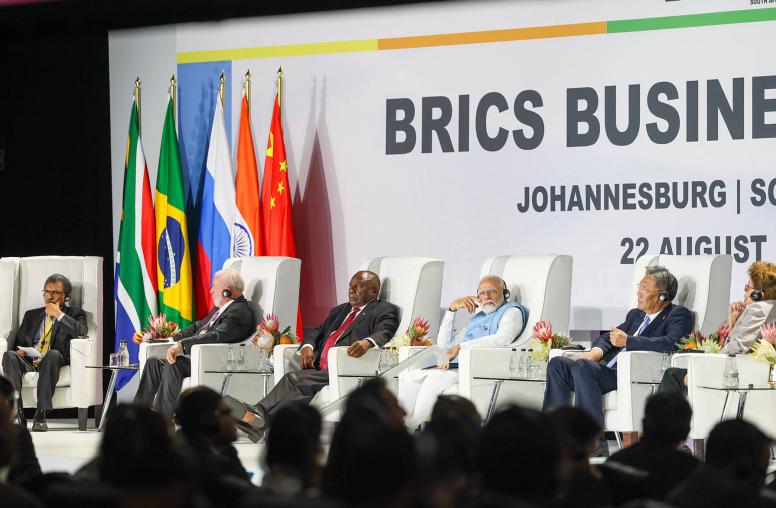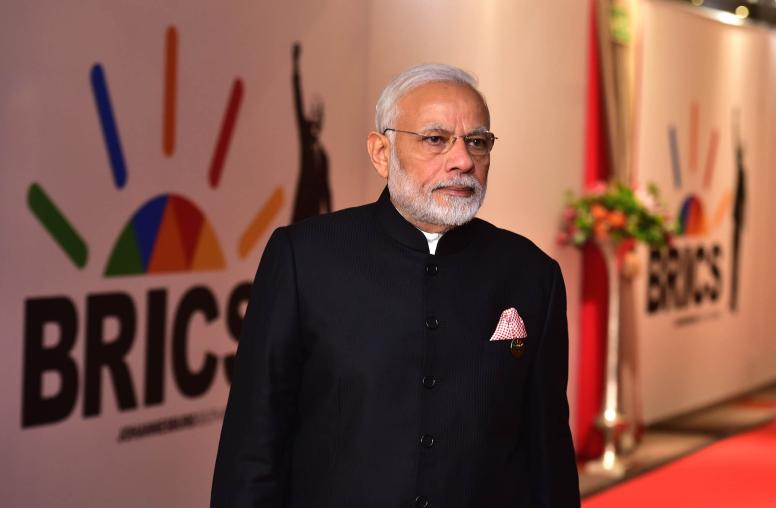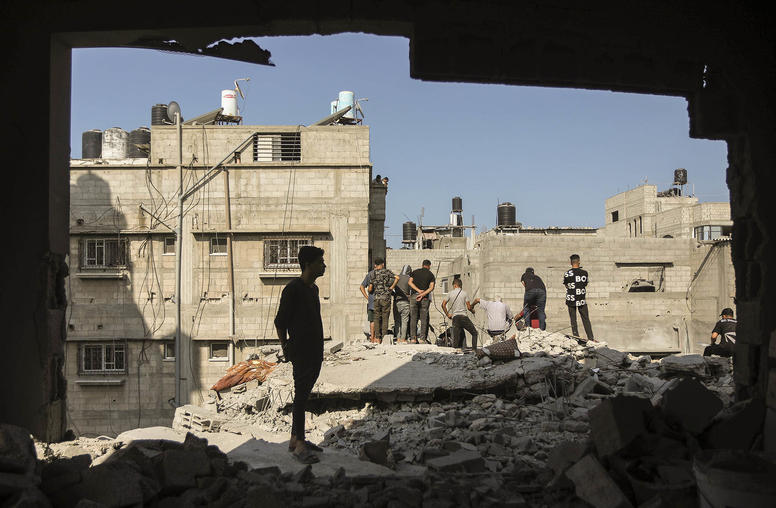Brazil’s Lula Looks to Revive Regional Cooperation — But He’s Got Critics
While greater Latin American integration could help address numerous challenges, Lula’s embrace of Venezuela’s dictator has sullied his initiative.
As the leader of Brazil, South America’s largest country — biggest by far in area, population and GDP —President Luiz Inácio Lula da Silva has enormous clout and the ambition to match. Six months into his third term in office (after a 12-year absence) the gregarious Brazilian leader — known around the world simply as “Lula” — has jumped eagerly back onto the world stage as a champion of the Global South.

Buoyed by the election of fellow leftist presidents in Argentina, Chile and Colombia, Lula is trying to resurrect the dream of South American economic and political integration. On May 30, Lula hosted a summit of South American leaders, with the goal of reviving the Union of South American Nations —UNASUR — created in 2008 but essentially dormant since 2018.
Efforts to create a bloc to foster regional cooperation and development, counterbalancing the United States, have failed repeatedly in the past, however, undermined by the region’s own competing interests and ideologies.
During the region’s last “pink-tide,” Lula, along with presidents Nestor Kirchner of Argentina and Hugo Chávez of Venezuela, spearheaded the creation of UNASUR. It included members of two previously created trade blocs — the Andean Community (Bolivia, Colombia, Ecuador and Peru) and Mercosur (Argentina, Brazil, Paraguay and Uruguay) — plus Chile, Guyana, Suriname and Venezuela.
UNASUR lasted less than a decade as a united regional bloc. The group’s failure to agree on a secretary-general in 2018 triggered the split, exacerbated by differences over trade policies (openness versus protectionism) as the commodity boom deflated, sending the region into a deep recession. Venezuela’s crisis also opened up political fissures. As the pink tide receded, more conservative leaders urged the block to condemn political repression under President Nicolás Maduro. Between 2018 and 2020, the governments of Argentina, Brazil, Chile, Colombia, Ecuador, Paraguay and Peru all suspended their membership. However, the presidents of Argentina, Brazil and Colombia have expressed recently their intention to rejoin the bloc.
Divisions over how to address the crisis in Venezuela have re-opened the region’s political fissures. Lula offered Maduro not only a warm welcome in Brasilia on May 30 but also a heated defense from charges of authoritarianism, calling criticism of the Venezuelan government “absurd” and international sanctions “completely exaggerated.” His words drew rebukes from democratically elected leaders on both the left and the right.
Can Lula revitalize UNASUR? Or will his efforts founder amid political controversy over his decision to defend Maduro at the summit? USIP asked four experts — Nicolás Devia Valbuena, John Feeley, Jennifer McCoy, and Richard Sanders — to discuss the Brazilian leader’s ambitious agenda and both the obstacles to and opportunities for regional integration.
A Vanity Project for Lula?
Sanders: Lula’s effort to revive UNASUR is part of a broader effort to raise Brazil’s international profile and with it his own reputation as a global figure of stature. However, his recent moves have been marked by an anti-Western bias, which we saw signs of during his previous two terms in office. He has offered himself as a mediator between Russia and Ukraine, even as he has visited Moscow but not Kyiv, and has gone out of his way to show understanding for Russia’s stance. Lula has repeatedly raised the idea of finding an alternative to the “hegemony” of the dollar to finance international trade. And even as he takes positions sure to irritate the United States and Europe, he likely will revive his push for a reform of the United Nations system with the goal of giving Brazil a permanent seat on the Security Council.
The Brasilia summit was marked by rancor over Lula’s close embrace of Venezuelan dictator Nicolás Maduro. While Maduro’s presence at the summit was unsurprising, Lula shocked many by publicly insisting that Maduro had been democratically chosen by Venezuelans and that criticism of him amounted to a “constructed narrative.”
This was challenged from both the right and the left. Uruguay’s conservative president, Luis Lacalle, asserted that Venezuela’s actions to undermine human rights and democracy were a “serious reality” and that “one can’t hide the sun with one’s finger.” And leftist Chilean President Gabriel Boric insisted that “human rights need to be respected everywhere” and that the Brasilia summit provided an opportunity to “raise this directly with Maduro.”
They also threw cold water on the prospects for a revived UNASUR. As Lacalle said, “We should stop this tendency to create new institutions.” For his part Boric called for mechanisms for flexible cooperation, saying that with or without UNASUR, the region needed “spaces to work together united.”
Not discussed at the summit were the crises raging through much of South America, where, aside from Venezuela’s dire situation, Colombia faces a sputtering peace process, confrontations between presidents and congresses in Peru and Ecuador have gravely affected governance, and Argentina is in the midst of an economic meltdown.
The summit has come and gone, but the divisions expressed there, and the absence of substance lead one to ask whether this was a meaningful exercise or a Brazilian-led vanity project.
The Need for Greater South American Cooperation
Devia-Valbuena: President Lula wants to reinstate what he believes is Brazil’s role as leader of Latin America. But the Lula-Maduro meeting defined the tone and atmosphere of the summit, sparking criticism from civil society and presidents alike. The fallout will hamper Lula’s hopes to become the region’s leader before the rest of the world. Despite his country’s economic and political might, the rest of Latin America does not necessarily see the leader of Portuguese-speaking Brazil as their representative.
The summit did highlight the need for greater South American integration. Although they differed over Venezuela, participants agreed to create a “contact group” composed of all South American foreign ministers to evaluate previous integration efforts and submit a roadmap for the presidents’ consideration. The countries also identified key areas for cooperation that could jumpstart the integration process, such as a regional free trade zone, infrastructure, food security, the protection of the environment, and defense and security.
Rather than reviving UNASUR, the summit could prove useful to start a process of specialized, thematic cooperation and integration in concrete areas where parties can achieve early wins. The consolidation of a regional electric grid and/or a shared telecommunications infrastructure, and the coordination of diplomatic efforts on the environmental agenda to achieve a deal on debt relief in exchange for environmental services are objectives that regional leaders could begin working on despite their political differences.
Bringing Venezuela Back into the Fold Must be Done Right
McCoy: Lula stirred controversy by inviting Maduro to his gathering of a dozen South American leaders last week. Inviting Maduro was a sound decision; the comments Lula made about critiques of Venezuela’s slide into authoritarian politics were not. Instead, his remarks sounded like a post-truth rationalization, calling Venezuela’s anti-democratic image a “narrative” promoted by Western countries with “very large prejudice” against Venezuela.
Fortunately, both a leftist (Chile) and rightist (Uruguay) president called out this misguided attempt to ease Maduro back into regional diplomacy by denying reality on the ground and buying into Maduro’s own narrative of victimhood and persecution.
But the inclusion of Venezuela in regional diplomacy is important. Governments need to communicate with one another to resolve mutual problems. Isolating a government that is behind the largest refugee crisis in the region’s modern history, affecting most of South America and beyond, makes no sense. Now a criminal gang starting in Venezuela appears to have spread to neighboring states, which are already suffering from surging crime rates — yet another indicator of how porous the region’s borders are.
Re-inclusion in multilateral fora, carefully done, could bring Venezuela back into the rules-based order so it is not completely reliant on a coalition of pariah states. International institutions such as the Inter-Commission on Human Rights and the International Criminal Court, though weak on enforcement, provide avenues for citizens to seek redress for abuses and for civil society organizations to monitor and report, thus helping hold violators accountable. The Organization of American States can provide international election monitoring and organize a Group of Friends to accompany Venezuela’s domestic efforts for democratic and economic reconstruction. Multilateral economic institutions will be critical in Venezuela’s economic recovery and the United Nations has promised to manage a humanitarian fund, if it ever gets off the ground.
The region’s leaders should aspire to holding frank, private conversations about the crises of democracy and governance facing the region, and indeed the globe. The goal would be to renew old commitments while devising new strategies to overcome deep polarization, protect universal rights and resolve political conflicts by re-establishing social contracts through democratic mechanisms.
How Washington Can Harness Lula’s Ambitions
Feeley: As U.S. policymakers observe Latin American presidents' latest summit efforts — such as Colombian President Gustavo Petro’s convening of selected leaders on the issue of Venezuela's multiple crises, or Lula's attempt to get the UNASUR band back together — the temptation to schadenfreude is manifest. Both meetings appeared rushed, produced little, and came off as amateurish. However, gloating or smug "I-told-you-sos" are exactly what the United States should now avoid.
Rather, U.S. policymakers should publicly encourage Lula to continue to take up a leadership role in the region on multilateral issues, like climate change and the environment, and address thorny country-specific issues, such as democratic backsliding and the repression of human rights in multiple countries under authoritarian rule. As Secretary of State Antony Blinken wisely stated at the 2022 Organization of American States General Assembly, the United States should drum into Lula that Cold War optics of "left versus right" or "conservative versus progressive," are relics. The only lens that matters now is authoritarian versus democrat.
Criticism of Maduro is far more effective coming from Chile's Boric than from U.S. officials. Quietly, however, U.S. diplomats should make clear to Lula and his compatriots on the need to protect human rights in Venezuela there is zero daylight between what Boric said and what the United States believes on a bipartisan bias. But the United States should do this through quiet diplomacy and not performative, denunciatory soundbites.
Richard M. Sanders is a global fellow at the Woodrow Wilson International Center for Scholars and a senior fellow at the Center for the National Interest. He formerly served as director of the Office of Brazilian and Southern Cone Affairs at the U.S. Department of State.
Jennifer McCoy is a professor at Georgia State University and nonresident scholar at the Carnegie Endowment for International Peace.
John Feeley is the executive director of the Organization of American States’ Center for Media Integrity of the Americas and a former U.S. ambassador to Panama.



